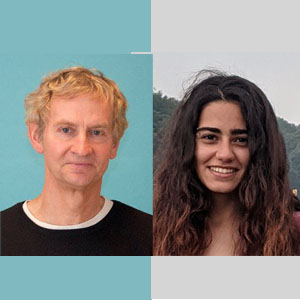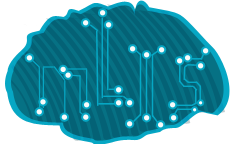
Prof. Jan Treur & Gülay Canbaloğlu
Prof. Jan TreurSocial AI Group, Vrije Universiteit Amsterdam, Netherlands
Gülay Canbaloğlu
Researcher & Ph.D. candidate, Delft University of Technology, Netherlands
Speech Title: Context-Sensitive Control of Adaptation: Self-Modeling Networks for Human Mental Processes Using Mental Models Applied to Model Organisational Learning
Abstract: Within their mental and social processes, humans often learn, adapt and apply specific mental models of processes in the world or other persons as a kind of blueprints. In this presentation, it is discussed how analysis of this provides useful inspiration for the development of new computational approaches from a Machine Learning and Network-Oriented Modeling perspective. Three main elements are: applying a mental model as a form of internal (mental) simulation, developing and revising a mental model by some form of adaptation, and exerting control over this adaptation in a context-sensitive manner. This concept of controlled adaptation relates to the Plasticity Versus Stability Conundrum from neuroscience. The presented analysis has led to a three-level computational architecture for controlled adaptation. It is discussed and illustrated by examples of applications how this three-level computational architecture can be specified based on a self-modeling network and used to model controlled learning and adaptation processes based on mental models in a context-sensitive manner. The abovementioned is joint work with Raj Bhalwankar and Laila van Ments; a Springer Nature book about it will be available in December 2021. Recently, as an important next step it has been found out by Gülay Canbaloğlu how the very challenging topic of computational modeling of complex multilevel organisational learning can be addressed. After a number of published papers this year, another Springer Nature book focussing fully on the latter topic will appear in 2022.
Biography: Jan Treur works as a full professor in Artificial Intelligence. He is an internationally well-recognized expert in human-directed AI and cognitive and social modelling. The research of Jan Treur during the past 10 years concerns both fundamental and application-directed aspects of human-directed AI. This covers methods and techniques for modelling and analysis of human-directed AI approaches in a number of application areas, including Cognitive and Social modelling and simulation. He has been and still is active both by author and PC member roles in practically all relevant conferences and journals in these AI and application areas. Currently his research has mostly a multidisciplinary focus and addresses Network-Oriented Modeling approaches based on adaptive temporal-causal networks to model cognitive, affective and social interactions, with two books about this published in 2016 and 2020. Applications cover multi-order adaptive network models for mental and social simulation and human-aware or socially aware AI systems and virtual agents. More details can be found at URL https://www.researchgate.net/profile/Jan_Treur.
Gülay Canbaloğlu combines her studies in Computer Engineering, Sociology and AI at the prestigious private Koç University in Istanbul with her work as researcher and Ph.D. candidate for the Safety and Security Science group at Delft University of Technology under supervision of prof.dr. Jan Treur and dr. Peter Roelofsma. Her research focus is on computational modelling of organisational learning with special application to learning of just safety culture in health care organisations. Part of her research is conducted in collaboration with dr. Anna Wiewiora from the School of Management of Queensland University of Technology in Brisbane. In her recent work she reached an important achievement by successfully using self-modeling networks to obtain suitable computational models of complex organisational learning processes. More details can be found at URL https://www.researchgate.net/profile/Guelay-Canbaloglu-2.
